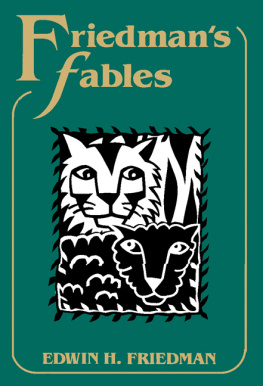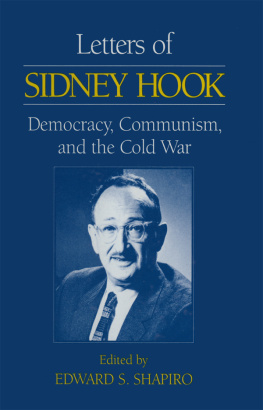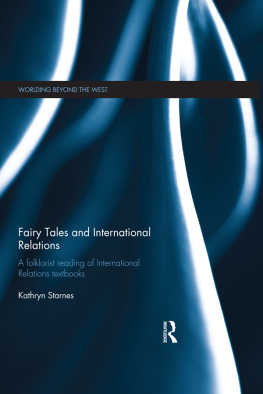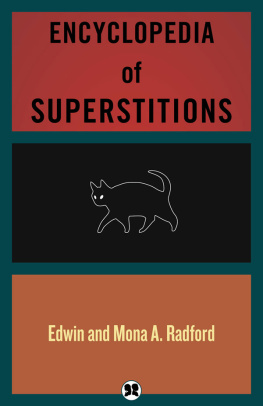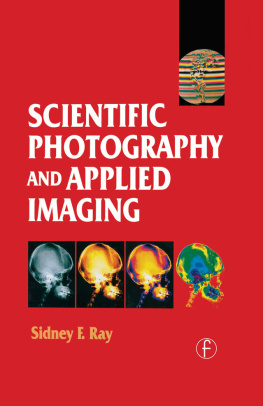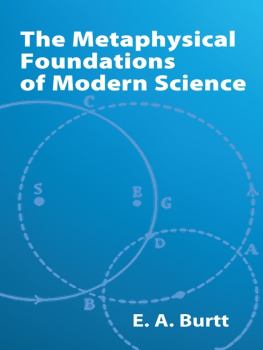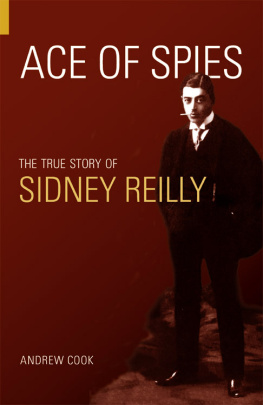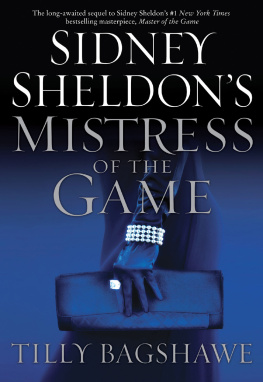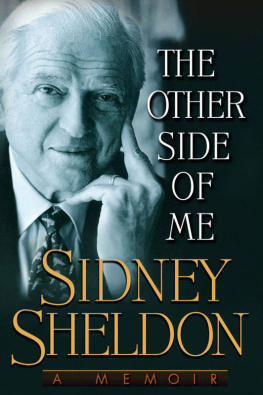Edwin Sidney Hartland - The Science of Fairy Tales
Here you can read online Edwin Sidney Hartland - The Science of Fairy Tales full text of the book (entire story) in english for free. Download pdf and epub, get meaning, cover and reviews about this ebook. year: 2012, publisher: Auk Academic, genre: Art. Description of the work, (preface) as well as reviews are available. Best literature library LitArk.com created for fans of good reading and offers a wide selection of genres:
Romance novel
Science fiction
Adventure
Detective
Science
History
Home and family
Prose
Art
Politics
Computer
Non-fiction
Religion
Business
Children
Humor
Choose a favorite category and find really read worthwhile books. Enjoy immersion in the world of imagination, feel the emotions of the characters or learn something new for yourself, make an fascinating discovery.

- Book:The Science of Fairy Tales
- Author:
- Publisher:Auk Academic
- Genre:
- Year:2012
- Rating:4 / 5
- Favourites:Add to favourites
- Your mark:
- 80
- 1
- 2
- 3
- 4
- 5
The Science of Fairy Tales: summary, description and annotation
We offer to read an annotation, description, summary or preface (depends on what the author of the book "The Science of Fairy Tales" wrote himself). If you haven't found the necessary information about the book — write in the comments, we will try to find it.
The Science of Fairy Tales — read online for free the complete book (whole text) full work
Below is the text of the book, divided by pages. System saving the place of the last page read, allows you to conveniently read the book "The Science of Fairy Tales" online for free, without having to search again every time where you left off. Put a bookmark, and you can go to the page where you finished reading at any time.
Font size:
Interval:
Bookmark:
The Science
of
Fairy Tales
AN INQUIRY INTO FAIRY MYTHOLOGY
BY
EDWIN SIDNEY HARTLAND
FELLOW OF THE SOCIETY OF ANTIQUARIES
This edited version, including layout, typography, additions to text, cover artwork and other unique factors is copyright 2012 Andrews UK Limited
This book is sold subject to the condition that it shall not, by way of trade or otherwise, be lent, resold, hired out or otherwise circulated without the publishers prior written consent in any form of binding or cover other than that in which it is published, and without a similar condition being imposed on the subsequent purchaser.
PREFACE.
The chief object of this volume is to exhibit, in a manner acceptable to readers who are not specialists, the application of the principles and methods which guide investigations into popular traditions to a few of the most remarkable stories embodying the Fairy superstitions of the Celtic and Teutonic peoples. Some of the subjects discussed have already been dealt with by more competent inquirers. But even in these cases I have sometimes been able to supply additional illustrations of the conclusions previously arrived at, and occasionally, I hope, to carry the argument a step or two further than had been done before. I have thus tried to render the following pages not wholly valueless to students.
A portion of the book incorporates the substance of some articles which I contributed to The Archological Review and Folk-Lore. But these have been to a considerable extent re-written; and it is hoped that in the process wider and more accurate generalizations have been attained.
My hearty thanks are due to the various friends whose generous assistance has been recorded in the footnotes, and especially to Professor Dr. George Stephens, the veteran antiquary of the North, and Mr. W. G. Fretton, who have not measured their pains on behalf of one whose only claim on them was a common desire to pry into the recesses of the past. I am under still deeper obligations to Mr. G. L. Gomme, F.S.A., who has so readily acceded to my request that he would read the proof-sheets, and whose suggestions have repeatedly been of the greatest value; and to Mr. Havelock Ellis for the counsel and suggestions which his experience has more than once enabled him to give as the book was passing through the press.
I have been anxious to enable the reader who cares to do so to verify every statement made; but some of them no doubt have escaped reference. Many books are cited again and again, and in similar cases the reader's time is frequently wasted in searching for the first mention of a book, so as to ascertain its title and other particulars. To avoid the trouble I have so many times experienced in this way, I have put together in an Appendix a list of the principal authorities made use of, indicating them by the short title by which they are cited in the footnotes, and giving sufficient bibliographical details to enable them to be identified. Classics and works which are in every one's hands I have not thought it necessary to include in the list.
E. S. H.
Barnwood Court, Gloucester,
24th October, 1890.
CHAPTER IX.
THE SUPERNATURAL LAPSE OF TIME IN FAIRYLAND
(continued).
The story not an early one - Its weirdest developments European - Stories of short time appearing long - Mohammed's night-journey and its variants - The Sleeping Hero, a heathen god - The Wild Hunt - The Enchanted Princess, a heathen goddess.
The visits to Fairyland recorded in Chapter VII differ only in one respect from those mentioned in earlier chapters of this book. Like them, they are visits of business or of pleasure. Mortals are summoned to perform some service for the mysterious beings whose dwelling is beneath the earth, such as to stand sponsor to their children, or to shoe their horses; or they go to take a message from this world, or to bring a message back. Or else they are drawn into the regions over which the power of the supernatural extends, by curiosity, by the desire of pleasure, or else by the invitation, or unconsciously by the spell, of their superhuman inhabitants. The point at which the visits differ from those we have previously considered, and from a hundred others precisely parallel in all other respects, is in their length. To the entrammelled mortal the visit seems to last but a moment; for while under the fairy sway he is unconscious of the flight of time. In other stories deception is practised on the sight. The midwife, without the ointment, is deceived like Thor by Utgard-Loki: nothing is as it appears to her. Parents and husbands are deceived by changelings: they are made to believe that images of dead wood are living creatures, or human corpses. In these stories, on the other hand, the magic is directed against the sense of time. A subtler, a weirder, a more awful horror is thus added to the dread of communion with the supernatural.
This horror is one arising comparatively late in the history of culture. The idea of time must first grow up and be elaborated. Time is dependent on number. A savage who can barely count beyond five cannot know anything of stories which deal with the lapse of centuries. Even the vaguer, but shorter, period of a generation will be an idea he cannot grasp. We have therefore found no such tales in the lower savagery; and even among the Lapplanders and the Siberian tribes the stories we have been able to collect speak only of short periods, such as the transition from autumn to spring, where a man had slept through the winter, and the expansion of a day into a month, or a year. In these two cases not only the phases of the moon and the measurement of time by them, which must have been early in development, but also the cycle of the seasons had been observed. But the idea lying at the root of this group of tales is as yet only in germ. The full terror of the situation, as exhibited in the traditions of the more highly organized societies of Europe and of the extreme Orient, is unforeseen. For it is in proportion to the organization of society that such a catastrophe as the loss of years, and thereby of kindred and friends, becomes really dreadful. Indeed, it would seem to have been reserved for the European nations to put the final touches of gloom and horror upon the canvas. It may be sufficient to refer this to the more sombre imagination of Western peoples. But we ought not to overlook the influence of the Catholic Church in darkening the general tone of the imagination, and particularly the tone of the fairy sagas, by the absolute and unquestioned supremacy she demanded, and the frightful penalties, temporal and spiritual, she invoked upon those who dared to indulge in cults she was unable to incorporate. To men under such an influence, intercourse with fairies would be a thing unholy; and the greater the temptations to it, the severer, they would deem, should be the penalties. This is the frame of mind which would, if with shuddering, yet without a murmur, acquiesce in the justice of the doom suffered by Herla, to put an extreme case - a frame of mind undoubtedly countenanced by the equally uncompromising claims of various forms of Protestantism. But, while reprobating commerce with unhallowed spirits, intercourse with spirits sanctioned by the Church was believed to be almost equally possible, and was encouraged as much as the other was denounced. If such intercourse sometimes resulted in severance between the favoured mortal and his human friends, this was only an extension of the monastic idea; and, as in that case, the loss was held to be abundantly compensated by the favour of Heaven and the bliss received. At all events it is certain, from whatever cause, that the deepest depths and the loftiest heights of which this story-plot has been found capable, have been reached only under Christian influences. Pliny and Mohammed, the Taoist and the Shintoist, have recorded no tale that sways our emotions like those of Herla, the Aged Bride, and the Monk Felix.
Next pageFont size:
Interval:
Bookmark:
Similar books «The Science of Fairy Tales»
Look at similar books to The Science of Fairy Tales. We have selected literature similar in name and meaning in the hope of providing readers with more options to find new, interesting, not yet read works.
Discussion, reviews of the book The Science of Fairy Tales and just readers' own opinions. Leave your comments, write what you think about the work, its meaning or the main characters. Specify what exactly you liked and what you didn't like, and why you think so.

